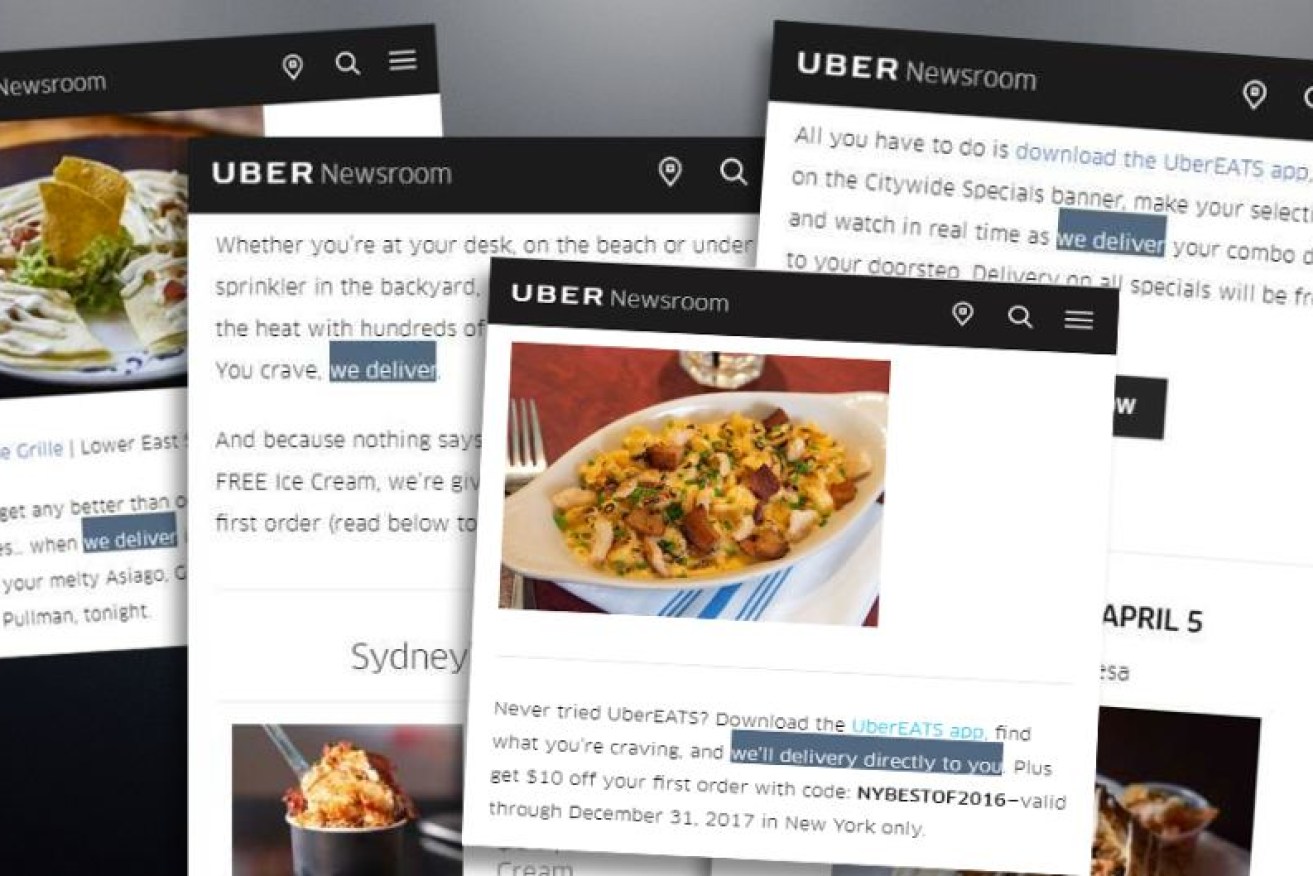Uber Eats to face ACCC probe over restaurant contracts

The ACCC's chairman says he will "have a look at" the company's allegedly unfair contracts. Photo: Uber
Australia’s competition regulator has signalled that it plans to investigate Uber’s allegedly unfair contracts with restaurant owners who have signed up to its Uber Eats delivery app.
“Certainly, we’ll have a look at it,” ACCC chairman Rod Sims told RN Breakfast this morning.
“We have three bits of the law we can deal with here.
“One is business-to-business — are they misleading the people they’re dealing with?
“Two is, are they engaged in unconscionable conduct, putting all the conduct together?
“And thirdly, are the terms with which they work unfair? So, there’s a lot to look at there.”
For conduct to be “unconscionable” under consumer law, it needs to be more than just “unfair”.
On its website, the ACCC said it would look for any conduct which is “particularly harsh or oppressive” that it goes against “good conscience” judged against the norms of society.
Among other things, the regulator will consider the relative bargaining strength of the parties and the use of undue influence or unfair tactics by the stronger party — Uber in this case.
In addition, the ACCC will also consider whether the terms imposed went beyond what is “reasonably necessary” to protect the stronger party’s legitimate interests.
What’s in Uber’s contracts?
The issue revolves around the terms restaurant owners must accept if they want to have their food delivered through Uber Eats.
Firstly, they have to agree that Uber doesn’t provide “any delivery or logistics services” — even though Uber boasts that “we deliver” in several sections of its website.
The Uber Eats contract also states that the drivers are the “agents” of the restaurant — even though it’s Uber that pays them and controls their workflow.
Furthermore, if the food becomes “substandard” (for example hot food falling below 60 degrees Celsius), Uber has the power to demand that the restauranteur cover the customer refund.
“The restaurant could give a piping hot pizza to the Uber driver,” said Ben Robertson, a lawyer from Carroll & O’Dea.
“But by the time it gets to the consumer, because of the route the driver takes, or the number of deliveries he takes along the way, it could be stone-cold.”
Mr Robertson said Uber seemed to be imposing this “fiction” to shift responsibility for deliveries, even though the restaurant owners have no control over the Uber delivery driver’s wages or workflow.








